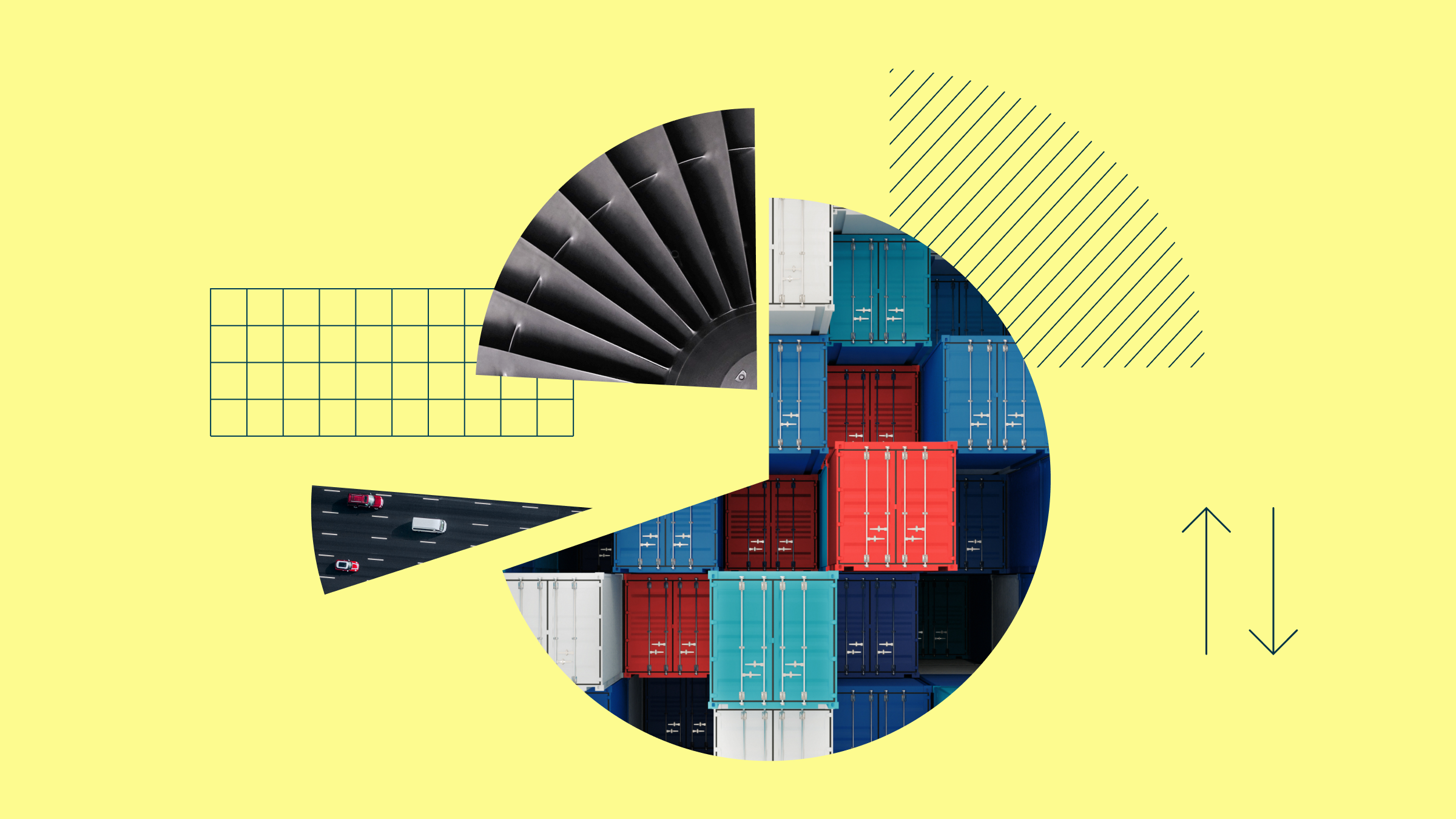 After one of the worst equity markets in years and a brief year-end rally (the latter just to confound investors), Patrick McKeegan prefers not to dwell on short-term phases, but rather on longer-term trends that will support a select group of stocks.
After one of the worst equity markets in years and a brief year-end rally (the latter just to confound investors), Patrick McKeegan prefers not to dwell on short-term phases, but rather on longer-term trends that will support a select group of stocks.
“Our strategy is a long-term bottom-up global growth strategy. We don’t really look at things on a month-by-month or year-to-year basis,” says McKeegan, a portfolio manager who is part of the team that oversees the 4-star silver-rated $314.3 million Franklin Global Growth F. McKeegan is a vice-president with New York-based Franklin Equity Group, a unit of Franklin Templeton Investments Corp, and shares duties with John Remmert, senior vice-president, and Yan Lager, vice-president. “We don’t try to make macro calls, and position the portfolio accordingly,” says McKeegan, “We are taking a three-to-five-year investment time horizon with the positions in the portfolio and being thoughtful about portfolio construction. Hopefully, that will enable us to ride out the macro-economic or industrial cycles.”
Baked-In Recession Fears Aren’t All Bad
McKeegan observes that while making market calls is extremely difficult, he does note that central bank actions are starting to taper off: “In places like Canada and Australia, we have seen central banks be a little more dovish than people would have expected. When you look at the state of the yield curve inversion in the U.S., a lot of that backdrop is suggesting that the market is increasingly expecting a mild recession,” says McKeegan. “The fact that a recession is baked into the market may be good news to some extent.”
One of the positive macroeconomic signs is that inflation is decelerating. “Some of the disruptions that you saw in supply chains and manufacturing activity have been normalizing. That’s a deflationary force that we believe will help achieve normalcy for the economy, and in a rapid fashion,” says McKeegan, a 13-year industry veteran who earned a BS in commerce from the University of Virginia in 2009, and previously worked for New York-based firms such as Destrier Capital and Tourbillion Capital Partners. “Also, from a U.S. and Canadian perspective, imports will be less expensive and that will have a deflationary impact. And in the U.S., you’re seeing rents and used car prices starting to come down. If you can look past this period of tightening, and inflation is coming under control, that would be a very positive scenario to be facing, in our view.”
Conversely, McKeegan concedes that if inflation reverses and becomes higher again, the Federal Reserve will need to respond and thus increase the likelihood that any recession may be more pronounced. Coupled with that worry are concerns about tensions between the U.S. and China, the Russian war with Ukraine, and other economic shocks that keep coming up. “This environment is unpredictable and it’s creating more uncertainty than we usually experience.”
Expect and Contain Uncertainty
In spite of all the global turmoil, McKeegan and his colleagues focus on a bottom-up fundamental approach to stock-picking and don’t try to position the portfolio based on specific geographies or political views. “We try to deal with economic shocks by maintaining a portfolio that is more diversified. Hopefully, if there is an outbreak of political events, then it’s contained in a small area of the portfolio. It isn’t something that we made a big bet on,” says McKeegan, noting, for example, that Russia accounts for less than 2% of the revenues of the firms in the portfolio.
For the 12 months ended Jan. 20, Franklin Global Growth F returned -8.22%, versus -5.05% for the Global Equity category. Over the longer term, however, the fund outperformed its peers and returned an annualized 8.41% and 11.86% over five and 10 years. In contrast, the category returned an annualized 5.27% and 9.38%, respectively.
Meanwhile, valuations have become more attractive. McKeegan notes that in 2019 the MSCI World Index was trading around 17 times forward earnings. Today, the multiple is below 16 times. “It’s still not rock bottom, but it is still more attractive if you look at headline metrics like that. Again, we prefer to take a company-specific view and our analysts are excited about various positions in the portfolio.” McKeegan adds that the team takes a buy-and-hold approach and turnover has been between 25% and 50% a year. “There’s been heightened activity from a new idea generation perspective, just as there are more valuation disconnects than you might normally see. That’s the indicator that I look for. There are more opportunities in the market, and we are more active in processing new ideas.”
Deep Research and High Conviction Names
From a strategic viewpoint, the team takes a concentrated approach and owns only about 35 names. “We focus on deep, fundamental research and look out three-to-five years,” says McKeegan, adding that analysts typically spend two months or more on new ideas. “We have also found that the analysts gravitate to mid- and large-cap ideas, which have less Wall Street coverage than mega-cap names. That enables us to have proprietary insights in less-trafficked areas of the market. Put it all together, that level of insight and conviction leads to a more concentrated number of holdings.” In addition, the team seeks to reduce risk by spreading out the holdings in a way that benefits from different growth areas around the world.
The other distinguishing characteristic is that from a geographic viewpoint the U.S. accounts for about 75% of the portfolio. “The portfolio construction is bottom-up and we are looking for companies that are pure plays on attractive growth engines and themes in the global economy. We are not as concerned about the domicile of the company, or where its revenue is coming from.” He adds that they don’t make exceptions to corporate governance and some countries have proven more challenging. “We are doing what is in the best interests of our shareholders.”
On a sector basis, healthcare and technology are the dominant sectors, with about 24% in each area. The other top sectors are financial services 17%, consumer cyclical 13.2% and industrials 11.7%. “As growth managers, it isn’t uncommon for us to be overweight on healthcare and technology. Both are areas where you find lots of innovation. When you think about the businesses in our portfolio we focus on strong intellectual property, compelling technology, scale and network effects. A lot of those factors lend themselves to companies that are in those sectors,” he says, adding that the team tends to stay away from businesses that are mature, cyclical and asset-intensive. “We focus on companies that have an attractive differentiated business model, with a strong competitive moat. Then you take that bigger picture and connect it to the company’s ability to have attractive free cash flow generation, ultimately throughout the economic cycle. We use a discounted cash flow analysis rather than market multiples.”
One representative holding is Rockwell Automation Inc. (ROK), a Milwaukee-based maker of industrial automation equipment and software for manufacturing firms. “Historically, it has benefitted from helping customers maximize their investment, whether it is waste control or utilization in their factories, and reducing downtime. What’s interesting in this environment is that, following all the challenges with supply chains due to the pandemic, you are seeing a greater emphasis on near-shoring and automation. As that has come to fruition Rockwell is helping companies automate their factories,” says McKeegan, adding that Rockwell benefits from a limited market since it is part of a duopoly that includes Honeywell International Inc. (HON). The stock is trading at US$256, or around 25 times forward earnings. Based on discounted cash flow analysis the team believes the stock has upside in the next year in the mid-teens on a percentage basis.
Another favourite is MongoDB Inc. (MDB), a California-based software company that provides support for so-called NoSQL databases, which store data more efficiently than conventional databases. “It is a leader in providing operational databases that are optimized for cloud computing,” says McKeegan, adding that the firm is a pioneer in using NoSQL database architecture that uses horizontal computing hardware more efficiently for a cloud environment. “They have the leading market share based on our work in the NoSQL environment. As more applications are developed, they are optimized for cloud computing. MongoDB has a first-mover advantage as NoSQL becomes an operational platform of choice. As computing increasingly moves to the cloud architecture they will gain market and their leadership will further accelerate their presence. The work that has been done over the last 15 years sets them apart.”
The stock is regarded as an “early-stage grower” in the portfolio. “They are breaking even on a cash flow basis. We think of their prospects over the next decade, because they are so early in the growth stage,” says McKeegan. “When we think of other software service companies that had analogous business models we think their EBIT margin [earnings before interest and taxes] can approach 30% over the next decade.” The stock is trading at US$197.50.








.jpg)














